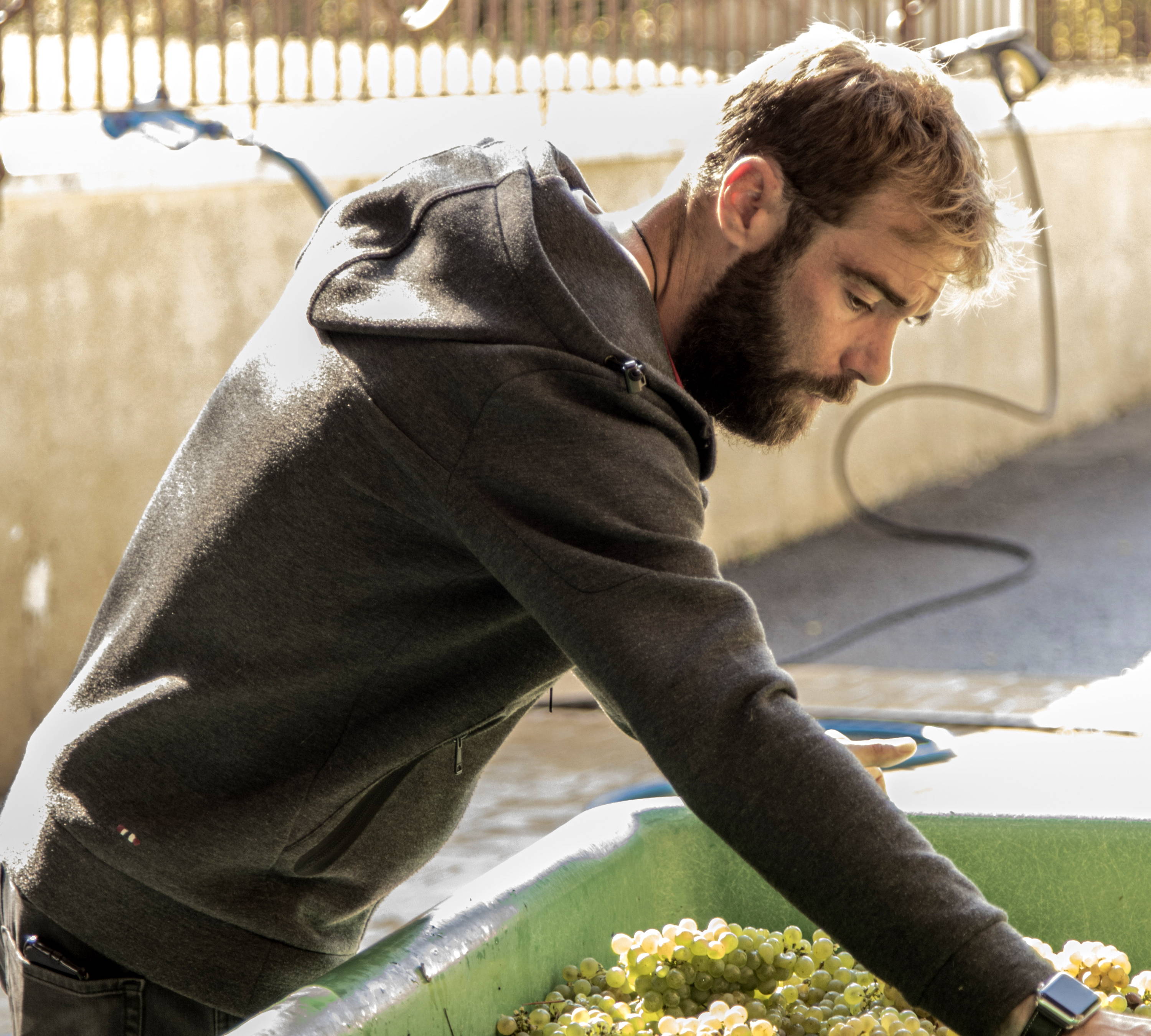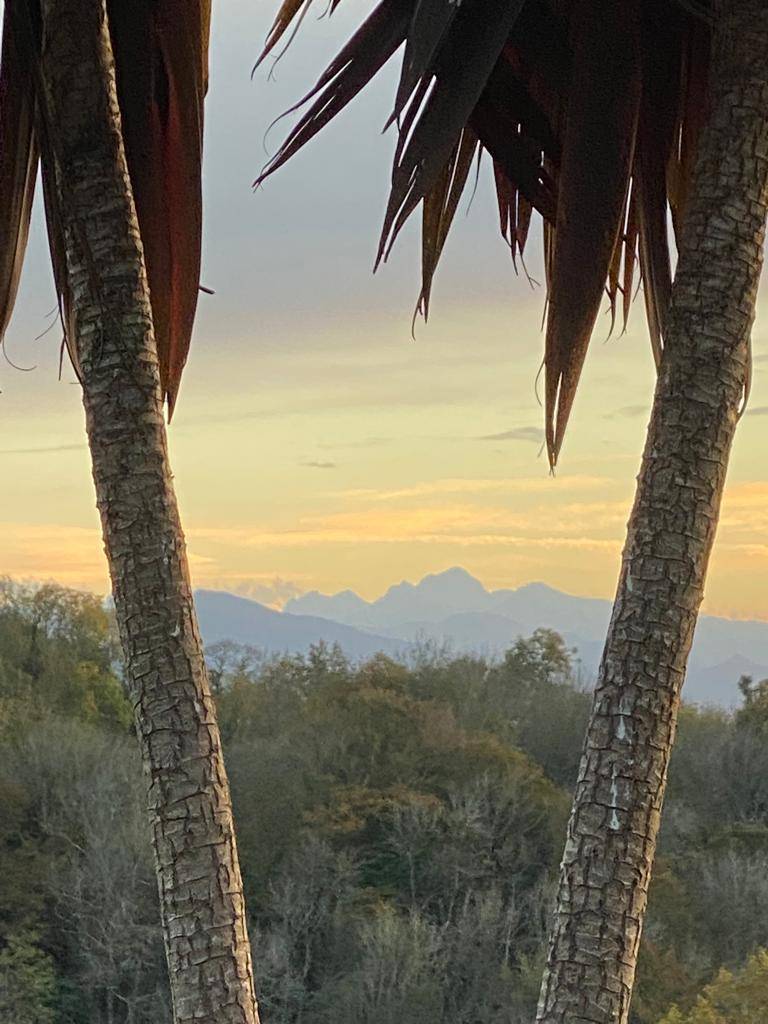JARDINS DE BABYLONE
Louis-Benjamin Dagueneau

Les Jardins de Babylone is a jewel born from the legendary Didier Dagueneau, the pope of Pouilly-Fumé. Fascinated by the iconic sweet wines and after several (impressive) tries at Pouilly-Fumé (but without appellation status), he started his hunt in 2002, looking for a unique terroir suitable for sweet wines. He found out a terrific spot, made of an amphitheatre of 3 ha vines with a panoramic view of the Pyrenees mountains (South-West of France), reminding Didier of the mythical Hanging Gardens of Babylon (Les Jardins de Babylone in French).
Les Jardins de Babylone is a jewel born from the legendary Didier Dagueneau, the pope of Pouilly-Fumé. Fascinated by the iconic sweet wines and after several (impressive) tries at Pouilly-Fumé (but without appellation status), he started his hunt in 2002, looking for a unique terroir suitable for sweet wines. He found out a terrific spot, made of an amphitheatre of 3 ha vines with a panoramic view of the Pyrenees mountains (South-West of France), reminding Didier of the mythical Hanging Gardens of Babylon (Les Jardins de Babylone in French).


Convinced that this area was not living up to its potential, he started to work out the soil of this terraced vineyard. He installed there his lifetime friend and associate Guy Pautrat. The terroir is made of clay and pebbles, a mix called "pounding". Didier's approach was to produce wines that bring out the natural minerality of the soil and have, above all else, balance, harmony and longevity.
The vineyard was in relatively good shape, so Didier and Guy relied on those existing old vines of native, near-extinct varieties: Camaralet, Lauzet, Petit Courbu, Gros Courbu, and Petit and Gros Manseng - all picked by hand. This genial duo rapidly delivered a stunning sweet Jurançon with a sharp acidity. The low yields and the warmth of the site means Les Jardins de Babylone can be picked as early as late October, an entire month before the grapes for conventional Jurançon moelleux are picked. Even so, the sweet wine usually ends up with approximately 125g/L residual sugar, it is perfectly balanced by mouth-watering and minerality, rendering a wine with fabulous verve and drive.

Convinced that this area was not living up to its potential, he started to work out the soil of this terraced vineyard. He installed there his lifetime friend and associate Guy Pautrat. The terroir is made of clay and pebbles, a mix called "pounding". Didier's approach was to produce wines that bring out the natural minerality of the soil and have, above all else, balance, harmony and longevity.
The vineyard was in relatively good shape, so Didier and Guy relied on those existing old vines of native, near-extinct varieties: Camaralet, Lauzet, Petit Courbu, Gros Courbu, and Petit and Gros Manseng - all picked by hand. This genial duo rapidly delivered a stunning sweet Jurançon with a sharp acidity. The low yields and the warmth of the site means Les Jardins de Babylone can be picked as early as late October, an entire month before the grapes for conventional Jurançon moelleux are picked. Even so, the sweet wine usually ends up with approximately 125g/L residual sugar, it is perfectly balanced by mouth-watering and minerality, rendering a wine with fabulous verve and drive.
Sadly, Didier Dagueneau passed away in 2008. He was survived by his son, Louis-Benjamin. He had grown up at the winery, working alongside his father in the vineyards and cellar and had very much absorbed his perfectionist attitudes and practices.
Today, his son Louis-Benjamin carries on with Guy Pautrat the work done in Jurançon. The relative sweetness of each vintage is for them secondary to the balance of acidity, texture and richness of the fruit. Hence the wines are never chaptalized. Nowadays, Louis-Benjamin and Guy are pushing the boundaries by producing, in addition to the sweet version, an off-dry (demi-sec) and dry (sec) cuvée, all labelled under "Vin de France".
The three cuvées are fully fermented and aged in different containers and formats, including classic or large oak barrels (demi-muid) and glass tanks (wineglobe). Whatever the residual sugar level, the wines display an impressive balance between rich texture and tangy acidity… something definitely unique in Jurançon or even in the entire world of wine.


Sadly, Didier Dagueneau passed away in 2008. He was survived by his son, Louis-Benjamin. He had grown up at the winery, working alongside his father in the vineyards and cellar and had very much absorbed his perfectionist attitudes and practices.
Today, his son Louis-Benjamin carries on with Guy Pautrat the work done in Jurançon. The relative sweetness of each vintage is for them secondary to the balance of acidity, texture and richness of the fruit. Hence the wines are never chaptalized. Nowadays, Louis-Benjamin and Guy are pushing the boundaries by producing, in addition to the sweet version, an off-dry (demi-sec) and dry (sec) cuvée, all labelled under "Vin de France".
The three cuvées are fully fermented and aged in different containers and formats, including classic or large oak barrels (demi-muid) and glass tanks (wineglobe). Whatever the residual sugar level, the wines display an impressive balance between rich texture and tangy acidity… something definitely unique in Jurançon or even in the entire world of wine.
REGION OF PRODUCTION
South West - France
APPELLATION
Jurançon
FOUNDED
2002
VINEYARD
3 ha
CLIMATE
Temperate oceanic
SOIL COMPOSITION
Clay & Pebbles
VARIETIES GROWN
Petit Manseng, Gros Manseng, Courbu, Camaralet, Lauzet
AGRICULTURE
Organic































